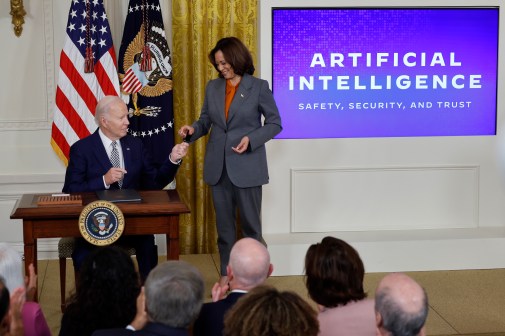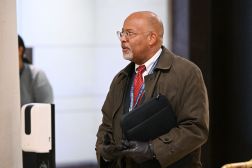How government can win the talent race

The government has long struggled to hire and retain talented young workers. According to a recent Office of Personnel Management report, less than 10 percent of the federal workforce is under the age of 30, compared to 23 percent of the workforce in the private sector. Troublingly, the report also finds that federal workers in their 20s are five times more likely to quit than those in their 50s.
The government’s traditional value proposition for prospective employees — higher-than-typical job security, strong retirement benefits and a sense of purpose — can no longer singlehandedly drive recruitment and retention, especially when compared to the workforce incentives offered by the private sector. As the value system and the perception of work shifts for the younger cohorts of the American workforce, government agencies at every level must modernize and enhance their approach to hiring and retaining talent.
Pay matters — and compensation is undoubtedly one of the most important factors behind workers’ employment choices and decisions to switch jobs or stay in them. In Deloitte’s Global 2022 Gen Z and Millennial Survey, nearly half of surveyed respondents cited dissatisfaction with pay as a reason to leave their current employer. Nationally, pay increases for state and local government employees haven’t kept pace with those of private workers and it needs to be addressed.
But values matter even more. The oldest members of Gen Z — those born between 1997 and 2012 — are currently entering the early stages of their careers and embarking on their professional journeys. By 2030, Gen Z will join millennials as the target hires for the next decade or more. Their life experiences and priorities differ greatly from the Baby Boomers and Gen Xers, who currently occupy the most senior roles in government.
To remain competitive in today’s labor market and to build a talented workforce for the future, government leaders should reimagine their recruitment strategies and prioritize efforts to attract, engage and retain Gen Z and millennial workers by recognizing their values and motivations.
In this important effort, here are five ways for agency leaders to build and strengthen a government workforce of the future:
- Embrace flexibility: Workers want flexibility across all dimensions of work – not only when and where they work, but also what type of work they do. In today’s increasingly hybrid work environment, government agencies should shift their paradigm around the when, where and how of work.
- Offer empathy and respect: The pandemic has exacerbated stress and burnout among workers and showcased the importance of having empathetic leaders who make workers feel respected and heard. In addition to increasing compensation, government leaders should cultivate workplace cultures that foster respect, inclusion and belonging.
- Invigorate entrepreneurial spirit: Government agencies can invest in resources such as internal talent marketplaces – forums where employees can look for rotations, projects or new roles within the organization – to provide a mechanism for employees to engage in projects they are passionate about or gain experience in different roles. They can also provide workers with continuous learning and skill development opportunities, which can play an outsized in improving job satisfaction.
- Focus on wellbeing: Government leaders must make considerable investments to expand access to mental health services and offer nontraditional benefits and individualized rewards that meet the unique needs of each employee.
- Elevate purpose and impact: Government agencies do some of the most purposeful and high-impact work in the country, but they do not talk or write about it nearly enough. Agency leaders should focus on showcasing the meaningful and dynamic work they achieve for the American people every single day.
The so-called great resignation will come to an end, but the underlying shift in employee values – especially among Gen Z and millennial workers – is here to stay. To attract the best and brightest talent, agencies must adapt their approach to workforce management and embrace new values of flexibility, culture, entrepreneurial spirit, well-being and purpose.
J.R. Ruiz, a principal with Deloitte Consulting LLP, helps lead Deloitte’s human capital practice. She works closely with federal, state and local government agencies to tackle strategic talent and operational issues, develop robust organizational structures and transform the workforce experience.
Amrita Datar, a manager with Deloitte’s Center for Government Insights, develops research publications focused on emerging trends at the intersection of technology, business and society – and how these critical trends might affect the public sector.




